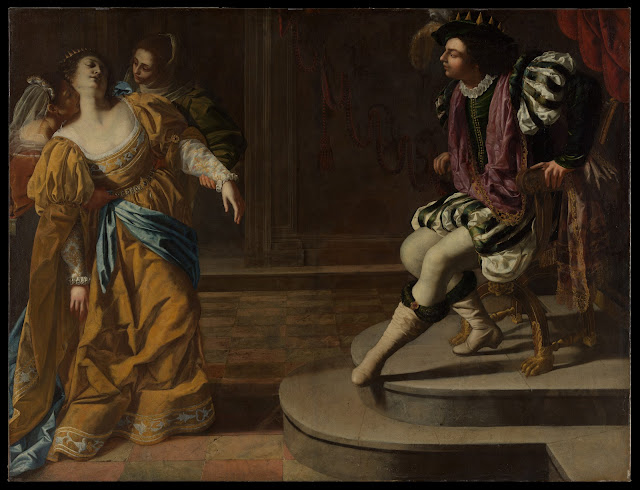 |
| Porgy at the Lyric Opera |
The first aspect was racial. Great music composed by a white Jewish guy, sung by an all-black cast. Art, but filled with odious stereotypes.
The second involves disability. Porgy is "a cripple." Originally, he pushed himself around on stage in a goat cart. But times change — now he hobbles on a crutch.
When lyricist Ira Gershwin updated the opera in 1952, a certain derogatory term for blacks was cut. "Cripple" could stay. In a column, I tried to specify which racial slur got axed, and an editor expunged it.
Which bothered me — I differentiate between a word hurled on a playground or from a stage and explaining exactly which term has been cut. But I also understand that such matters are highly sensitive. We used hyphens instead.
Which brings up the word "retarded." The Special Olympics is pushing on to scrub "retarded" from the language. As if on cue, the cartoon "Family Guy" featured Ellen, a character with Down syndrome, provoking Sarah Palin's well-exercised sense of victimization.
While I differentiate between art and life — I don't believe children live in a better world if we bowdlerize Huck Finn — there is also crossover between the two realms. If "Family Guy" has fun with Down syndrome, then certain viewers might feel entitled to do the same.
REMEMBER 'FEEBLE-MINDED'?
I don't like to equivocate. My gut instinct is against sanitizing culture — it can be counterproductive, even laughable. Will it really be progress when Bess sings, "He's a disabled indee-vidual an' he needs mah love"? I don't see it.
The actress who plays Ellen on "Family Guy" is Andrea Fay Friedman. She has Down syndrome and she thinks her role is funny. Isn't it the worst kind of paternalism to, in effect, try to get her fired because Sarah Palin is uncomfortable with seeing the subject she milks for sympathy being treated as a source of humor? People are either full adults out in the real world, or they're a special victim class who need coddling, and it's disingenuous to push for one and then, when they do something you don't like, invoke the other.
And yet. Were developmentally disabled people secure in the mainstream alongside the Irish and accountants, we could happily debate the cultural desirability of mocking them. But given that recognizing their full humanity is a fairly recent development, it seems that we should at least acknowledge that ridicule, though funny in entertainment, is destructive on a personal level.
The issue here is not what Sacha Baron Cohen says in "Borat," but what people say in their own lives, and here, while racial taunts and religious slurs have generally been sent to the woodshed, "retarded" hasn't, and it is time to put that term out to pasture.
Words change their meaning. When The Association for Retarded Citizens was founded in 1950, it was aiding people who were still called "feeble-minded," not as insults, but officially, as in the "Massachusetts School for Idiotic and Feeble-Minded Youth."
"Retarded" was a neutral, modern term, then. It isn't anymore, having been twisted into a taunt over 50 years.
Yes, whatever term replaces it will be equally corrupted eventually — notice the tone of grinning mockery that a junior high school student can invest in the word "special" and you realize this is a footrace between those whose experience makes them sensitive and those fortunate enough not to care, between those who would have an inclusive society and those who would chuckle at its most vulnerable members.
Sometimes — often — that is the same person. I laughed when Borat mistook "retard" with "retired," and would no sooner see it cut from the movie than I'd rewrite "The Merchant of Venice" to remove the religious references.
But that doesn't mean we have to cling to our present attitudes. Times change, and so does what is considered funny. In 1950, a child with Down syndrome was a humiliating family stigma. You'd dump that child in an institution and never speak of her again. Progress for people with disabilities paralleled advances in civil rights and feminism — heretofore marginalized groups struggling to reach their full potentials. Humor changed too. "Amos & Andy" isn't funny anymore; maybe someday "Borat" won't be funny, either.
In 1953, Dale Evans, wife of cowboy star Roy Rogers, penned a book, Angel Unaware, about their daughter Robin, who was born with Down syndrome. Doctors told her to have Robin institutionalized. Instead Evans, inspired by her deep Christian faith, posed the little girl in family publicity photos. The book sold 400,000 copies in the mid-1950s, and parents who otherwise never let their children out of the house felt comfortable bringing them to Roy Rogers rodeos, because of his wife's book.
They felt safe there.
I believe that any person with a heart, facing this complex issue, would rather err on the side of those children, would want them, not merely to get out of the house to see a cowboy show, but to also go to school with other kids and work at a job, if they could, still safe and accepted, without their lives being made a hell by would-be wits looking for someone to abuse.
That's what it boils down to. "Porgy and Bess" is still great, without the offending word. Alas, we lose a convenient butt of jokes — a concern to us satirists. The pool of potential victims does shrink alarmingly. But don't despair — there's always Canadians.
—Originally published in the Sun-Times, Feb. 22, 2010






